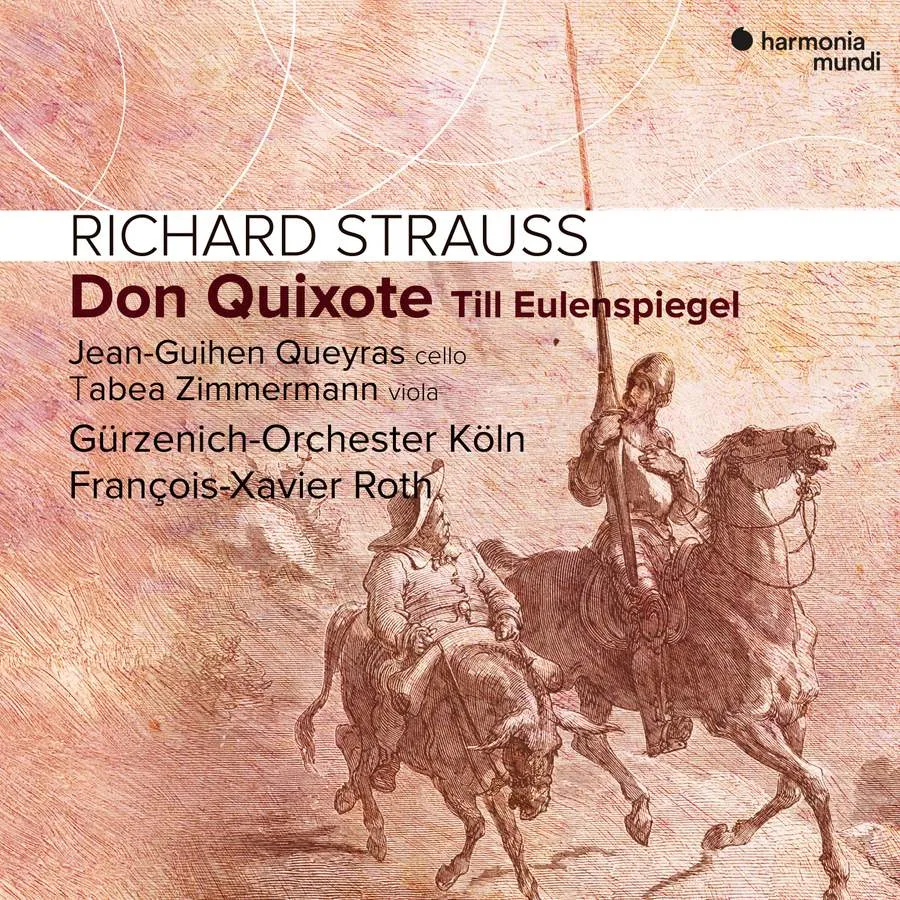
R Strauss Don Quixote; Till Eulenspiegel; Romanze Jean-Guihen Queyras (cello), Tabea Zimmermann (viola); Gürzenich-Orchester Köln/François-Xavier Roth Harmonia Mundi HMM 902370 62:01 mins
It’s fair enough that François-Xavier Roth should wish to add Strauss works premiered by his Gurzenich Orchestra to the Mahler Third and Fifth Symphonies he’s already recorded. But the Cologne players have been to Renaissance Spain and medieval Germany rather recently already with previous principal conductor Markus Stenz, and my allegiances to that magnificent Hyperion release remain unshaken. To my ears, Stenz and his Quixote, Alban Gerhardt, are more vivid and human/humane in the narrative which needs to be balanced with the lavishly counterpointed invention of this total masterpiece, though the present recording does score highly in the many spider-webs of sound reflecting the old would-be knight’s addled wits.
The sound is a bit on the dry side for Strauss, and I’m not so fond of the up-front balance which makes the soulful Jean-Guihen Queyras more of a soloist (the role was originally composed for an orchestral principal), though his subtlety is peerless in Quixote’s melancholy nocturnal vigil, one of two points where the symphonic poem really does turn concerto. Tabea Zimmermann is real luxury casting in fleshing out the role of Sancho Panza, scrupulous with every dynamic detail, but so too was Lawrence Power for Stenz.
Roth’s Till Eulenspiegel is among the very liveliest, though, even if the famous horn solo doesn’t have the spotlight the soloists get in the ‘Fantastical Variations’: there’s wonderful woodwind character as Till skips alongside the pedants, and the ‘big grimace’ followed by a cheeky flip into insouciance is as good as any I’ve heard.
David Nice